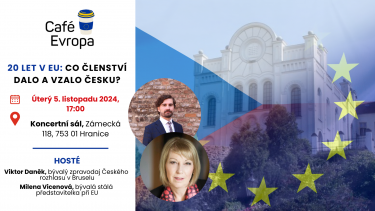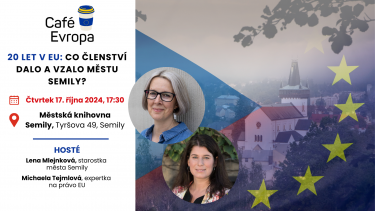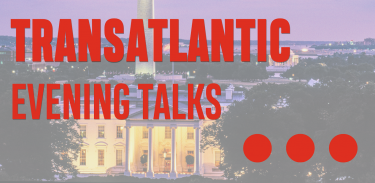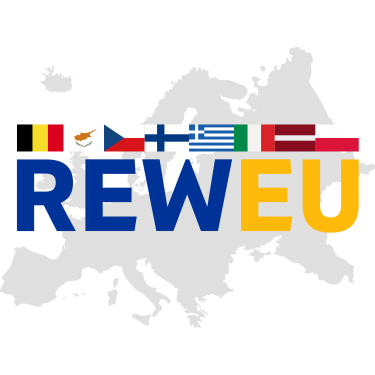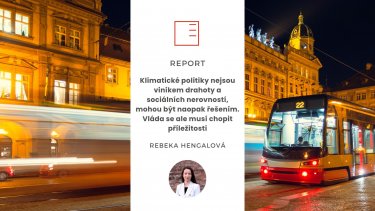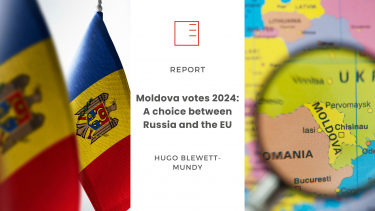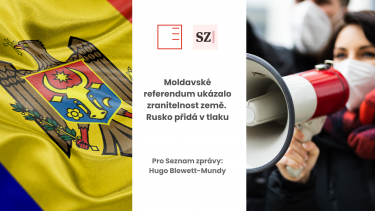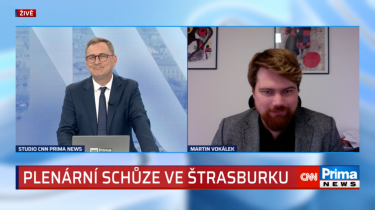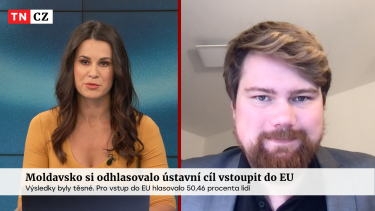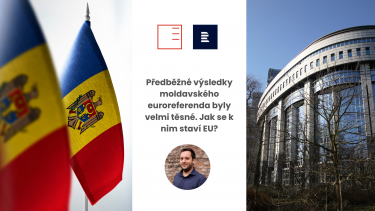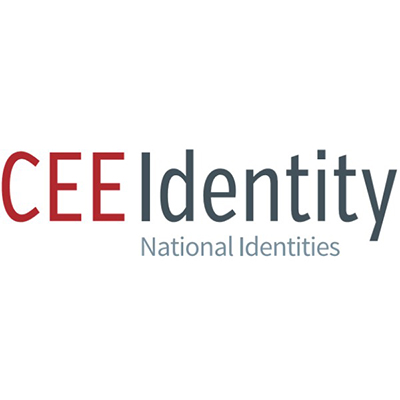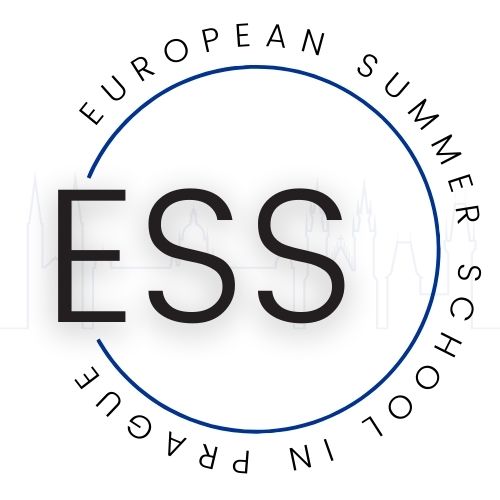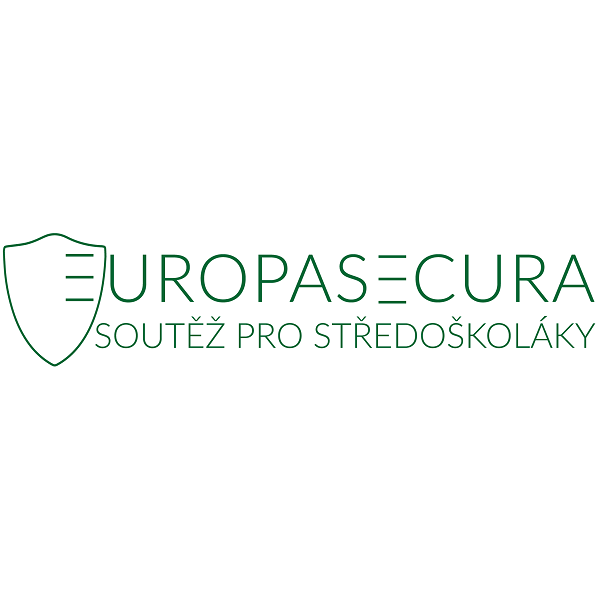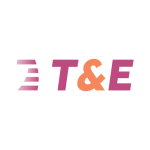
About the organisation
EUROPEUM is an independent think-tank focused on the European integration process. We conduct original research and organise public activities. We also formulate new ideas and recommendations to improve domestic and European policy.
Events
Café Evropa | 20 years in the EU: what has membership given to and taken away from Czechia?
Come and discuss at the next Café Evropa debate series! This time we will visit City of Hranice. Are you interested in how the Green Deal will affect the city, how to draw EU subsidies for local projects, the impact of adopting the euro, security or other European topics?
Show moreCafé Evropa | 20 years in the EU: what has membership given and taken away from Šumperk region?
At the end of October, we will be heading to Šumpersko for the regional debate from the Café Evropa series. Join our guests to discuss how the region has changed over the last two decades and what EU membership has brought to the region. How could the region make better use of European subsidies? And what will you get out of the Green Deal?
Show moreCafé Evropa | 20 years in the EU: what has membership given and taken away from Semily?
Come and debate at the next Café Evropa regional debate series! This time we will be in Semily. What do you think of the Czech Republic's 20 years in the EU? Are you worried about what the migration pact, the Green Deal will bring? Have European subsidies helped the development of the town? What has the EU given and taken away from you? We want to hear from you!
Show moreDebate in Brussels | A wind of change? Role of Central Europe and the next EU political cycle
As the dust settles after a hectic period of post-election negotiations, Von der Leyen’s second Commission is faced with serious economic challenges. Recent reports of Draghi and Letta have clearly indicated that the EU is lagging behind other global powers in the areas of growth and competitiveness and this is reflected in the composition of the College as well as within strategic priorities for the next political cycle. Come listen and debate about challenges EU is facing!
Show more
- Café Evropa | 20 years in the EU: what has membership given to and taken away from Czechia?
- Café Evropa | 20 years in the EU: what has membership given and taken away from Šumperk region?
- Café Evropa | 20 years in the EU: what has membership given and taken away from Semily?
- Debate in Brussels | A wind of change? Role of Central Europe and the next EU political cycle
Projects
TAPF | Transatlantic Evening Talks
Don’t miss this unique opportunity to expand your understanding of transatlantic relations with a one-week program in November! Over the course of this week, you’ll engage with experts, participate in discussions, and gain invaluable insights into the complex dynamics shaping the relationship between Europe and North America.
Show more
REWEU
The project (Re)uniting the East and West: Reflections on the 2004 EU enlargement (REWEU) is focused on the commemoration of the 2004 “big bang” EU enlargement at the occasion of its 20th anniversary in May 2024. This event had numerous positive effects on shaping Europe as we know it today, boosting its security, economic potential, and spreading democracy, good governance and European values across the European continent.
Show moreThink Visegrad conference - EU Enlargement Forum
On 10 and 11 April 2024, Prague will host a two-day conference entitled "20 Years of Reuniting Europe's East and West", organised by EUROPEUM Institute for European Policy in cooperation with the Ministry of Foreign Affairs as part of the Think Visegrad platform and the project (Re)uniting the East and West: Reflections on the 2004 EU enlargement (REWEU) supported by the International Visegrad Fund and the European Commission. The programme will also include the second edition of the EU Enlargement Forum.
Show more
Preparing news media in Bosnia and Herzegovina and Serbia for the digital age
The project aims to equip civil society organisations in Bosnia and Herzegovina and Serbia with comprehensive knowledge of media pluralism, media freedoms, and access to information necessary in the digital transition of the news media sector.
Show more
Articles and publications
Report | Climate policies are not the culprit of high costs and social inequalities, but can be the solution. But the government must seize the opportunity
This week, the Government will discuss in the third reading an amendment to the Emissions Trading Act, which also includes so-called household allowances. Under ETS2, these will charge for emissions from road transport and local heating - so they can help invest in infrastructure, renewable energy and support socially vulnerable groups. EUROPEUM Institute research fellow Rebeka Hengalová and others write.
Show moreReport | Moldova votes 2024: A choice between Russia and the EU
Moldova stands at a critical juncture that will determine its position within Europe. In the elections on Sunday, the incumbent president Maia Sandu is seeking a second term and a positive result in the EU accession referendum to reaffirm her country’s path towards Europe. But the hybrid threat facing Moldova from Russia will not dissipate, particularly as next year’s pivotal parliamentary elections approach in the tiny former Soviet republic. Hugo Blewett-Mundy, a non-resident associate research fellow from EUROPEUM, analyses the current situation in Moldova and provides an outlook for the country in 2025.
Show moreFactsheet | Emission allowances for households: What is ETS2 and how to use it to our advantage
The extension of the emissions trading system for local heating and road transport, the so-called ETS2, is due to come into effect in 2027. ETS2 now needs to be adopted into Czech legislation under the Emissions Trading Act. In this factsheet you will find basic facts and answers to questions that the Czech public often asks. Please also see the attached materials from the organisations that contributed to the factsheet.
Show more
Factsheet | Transport poverty: definition, primary data of Czech households and possible solutions
Already 3% of households in the Czech Republic are at risk of transport poverty, and this situation could worsen in a few years' time. Indeed, with the introduction of the ETS2, the emissions trading scheme for households, which extends emissions trading to road transport and local heating of buildings, fuel prices are expected to rise from 2027. This will have an impact on household budgets. Read the factsheet put together by Research Fellow at EUROPEUM Institute Rebeka Hengalová to find out exactly what transport poverty is and how it can be prevented and eradicated.
Show more- Report | Climate policies are not the culprit of high costs and social inequalities, but can be the solution. But the government must seize the opportunity
- Report | Moldova votes 2024: A choice between Russia and the EU
- Factsheet | Emission allowances for households: What is ETS2 and how to use it to our advantage
- Factsheet | Transport poverty: definition, primary data of Czech households and possible solutions
In the media
Seznam zprávy | The Moldovan referendum showed the vulnerability of the country. Russia will add to the pressure
Last year, Moldovan intelligence services detected Russian funding worth at least half a billion Czech crowns, which was used to stop the prosecution of illegal political activities, incitement to anti-government protests and corruption. EUROPEUM Institute non-resident associate research fellow Hugo Blewett-Mundy wrote a commentary for Seznam Zprávy.
Show moreCNN Prima News | Plenary meeting in Strasbourg to decide on budget and loan to Ukraine
MEPs in Strasbourg will vote on a loan of up to 900 billion crowns to Ukraine. This should be covered by the proceeds from frozen Russian assets. Other topics to be discussed include the EU's draft budget for next year and the situation in Lebanon. Martin Vokálek, executive director of EUROPEUM Institute, commented for CNN Prima News.
Show more
TV Nova | Moldova voted to join the EU, but it was a close call
In Moldova, citizens have voted in a referendum to join the European Union as a constitutional goal. The results were close. Martin Vokálek, executive director of EUROPEUM Institute, discusses the issue live on TV Nova.
Show more
ČRo Plus | The preliminary results of the Moldovan Euro-referendum were very close. How does the EU view them?
Moldova is likely to insert a European identity and a pro-European course into the preamble of its Constitution, according to the preliminary results of yesterday's referendum. The Kremlin, which according to the Moldovan government supported the opponents of the referendum, has already questioned the vote. Žiga Faktor, deputy director and head of EUROPEUM Institute's Brussels office, commented for ČRo Plus.
Show more
- Seznam zprávy | The Moldovan referendum showed the vulnerability of the country. Russia will add to the pressure
- CNN Prima News | Plenary meeting in Strasbourg to decide on budget and loan to Ukraine
- TV Nova | Moldova voted to join the EU, but it was a close call
- ČRo Plus | The preliminary results of the Moldovan Euro-referendum were very close. How does the EU view them?
Our team
Newsletter
Staroměstské náměstí 4/1
Prague 1 - Staré Město
110 00
tel.: +420 212 246 552
email: europeum@europeum.org
https://www.europeum.org
